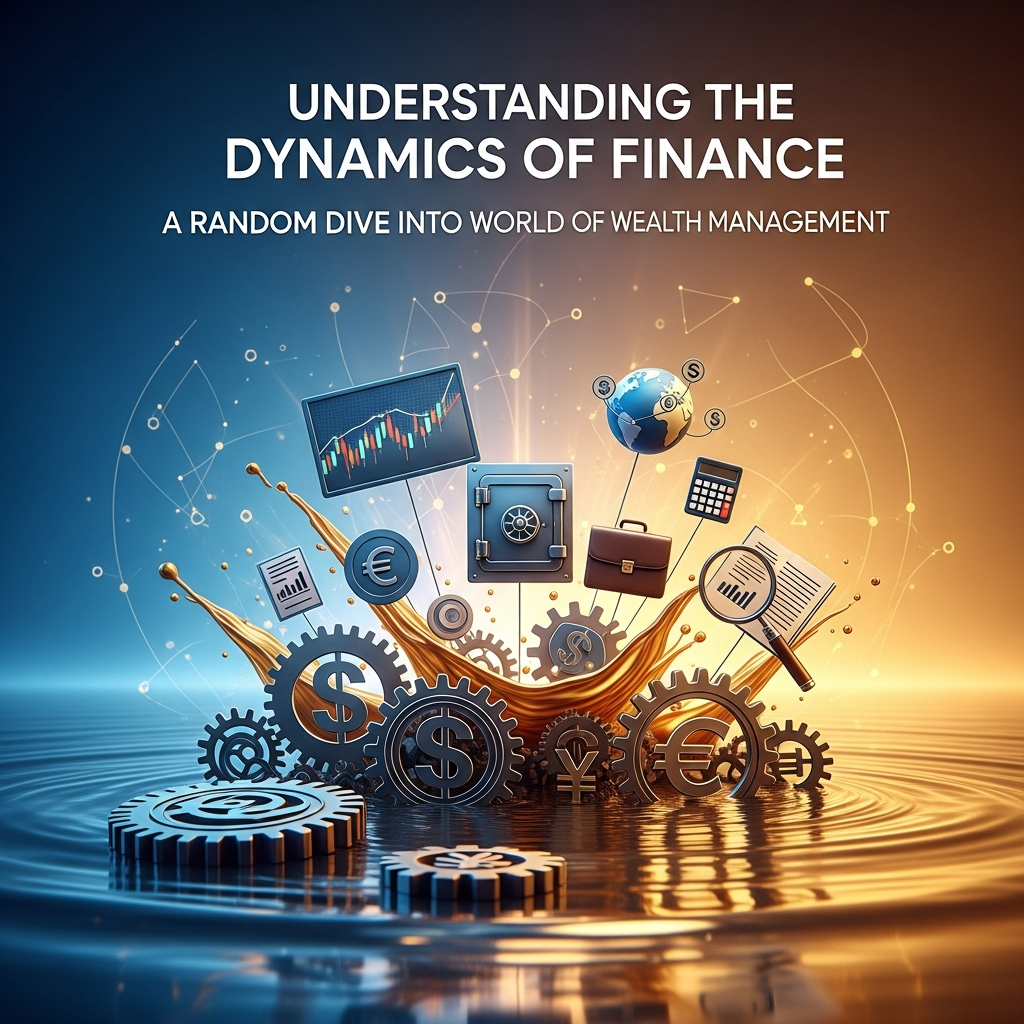Introduction
Finance is an intricate web of concepts, strategies, regulations, and markets that collectively drive the economy. It plays a crucial role in the functioning of corporations, governments, and personal lives. From the bustling trading floors in London to the serene offices of financial advisors, finance encompasses the management of money, the practices of investment, and the dynamics of lending and borrowing. This article will journey through several facets of finance, offering insights into wealth management, risk assessment, fintech innovations, and ethical investing.
Wealth Management: Crafting Personal and Institutional Fortunes
Wealth management is a comprehensive service aimed at affluent individuals or institutions, providing not just investment management but also a wide array of financial services tailored to the client’s needs. This could include financial planning, estate planning, legal resources, and accounting services.
- Holistic Financial Planning: Effective wealth management begins with understanding the client’s long-term goals. This involves a detailed assessment of current assets, potential income streams, liabilities, and potential obstacles. Wealth managers craft financial plans that encompass saving strategies, investment allocations, and risk management.
- Portfolio Diversification: A significant component of wealth management is building a diversified investment portfolio that aligns with the client’s risk tolerance and financial goals. Diversification reduces risk by allocating investments across various financial instruments, industries, and other categories.
- Tailored Tax Strategies: Minimising tax liabilities while maintaining compliance is crucial in wealth management. Advisors employ strategies such as tax-loss harvesting, efficient asset location, and utilising tax-advantaged accounts to optimise a client’s finances.
Risk Assessment: Navigating Uncertainties
Risk assessment is crucial in finance, enabling businesses and individuals to forecast potential losses and allocate resources efficiently. Understanding and managing risk is key to sustaining growth.
- Risk Metrics and Analysis: Financial institutions use various metrics (e.g., value at risk, standard deviation) to measure and predict potential risks. Regular stress testing and scenario analysis help in preparing for unforeseen market conditions.
- Credit Risk Management: For banks and lending institutions, credit risk assessment is vital. This involves evaluating the creditworthiness of borrowers, understanding credit scores, and using credit derivatives to hedge against potential defaults.
- Market and Operational Risks: Market risk involves fluctuations in market prices, interest rates, and currency exchange, whereas operational risk relates to failures in internal processes or systems. Implementing rigorous checks, balances, and technologies can dramatically reduce these risks.
Fintech Innovations: Revolutionising Financial Interactions
Fintech, short for financial technologies, is reshaping the landscape of finance by introducing novel solutions that enhance efficiency, transparency, and affordability.
- Digital Banking and Payment Solutions: With the rise of fintech, banks are increasingly offering digital-only services, pushing mobile and online banking to the forefront. Companies such as Monzo and Revolut exemplify this trend, providing user-friendly platforms and fee-free currency exchanges.
- Blockchain and Cryptocurrencies: The adoption of blockchain technology is revolutionising the settlement of transactions, providing immutable and transparent ledger systems. Cryptocurrencies, while volatile, represent a radical shift towards decentralised financial systems.
- Personal Finance Apps: A plethora of apps like Mint and Yolt are empowering individuals to take charge of their finances by offering tools for budgeting, spending analysis, and financial goal tracking.
Ethical Investing: Aligning Capital with Values
Ethical investing, or socially responsible investing (SRI), seeks to generate positive social impact alongside financial returns. This investment strategy has gained significant traction in light of growing global awareness of environmental and social issues.
- ESG Criteria: Investments are evaluated based on environmental, social, and governance (ESG) criteria, which can include a company’s carbon footprint, community engagement, and executive transparency.
- Impact Investing: Beyond merely avoiding negative impacts, impact investing actively seeks investments that aim to generate beneficial social or environmental outcomes, such as renewable energy projects or sustainable agriculture.
- Shareholder Advocacy: Investors are using their stakes to effect change within companies, advocating for policies and practices that align with broader societal values.
Conclusion
Finance is a multidimensional field that not only builds and manages wealth but also adapts to technological advancements, assesses intricate risks, and responds to ethical demands of society. Whether it’s through innovative fintech solutions or steadfast wealth management strategies, the dynamic world of finance continues to evolve, impacting economies worldwide. Understanding its various dimensions is essential for anyone looking to navigate the complex yet fascinating world of money. Just as finance is an ever-expanding domain, so too must our understanding of its intricacies expand, ensuring everyone can harness its potential to foster both individual and collective prosperity.
Discover more from TheHubBuzz.com
Subscribe to get the latest posts sent to your email.

